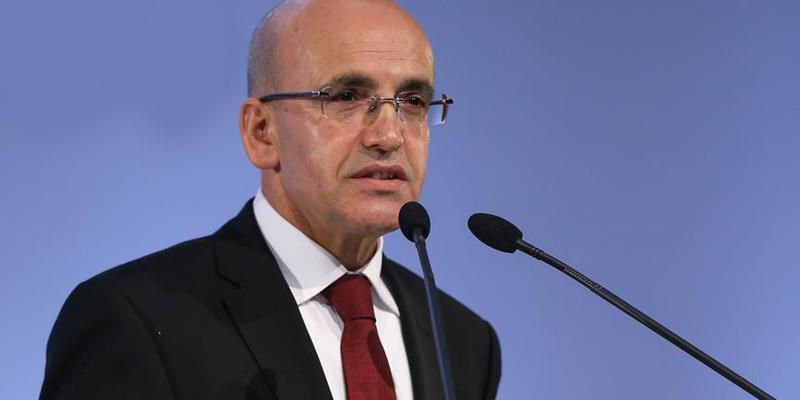Turkey will not ‘get obstinate’ with markets, Şimşek says
ANKARA

Turkey will not oppose the investors and markets, whose concerns about the economy are understood by the government, said Deputy Prime Minister Mehmet Şimşek on May 25.
“Turkey will solve all of its problems staying within the boundaries of the market economy and without getting obstinate with the markets. We understand the concerns of the markets and the nervousness of the investors. Our policy framework aimed at easing nervousness is clear. We have taken the necessary steps and we will continue to do so,” he told private Turkish broadcaster NTV.
“We will not step back from a rule-based market economy. Stepping back from the independency of the Central Bank, the rule-based market economy or the floating exchange rate regime has never appeared on our agenda,” he added.
The Turkish Central Bank decided to raise the top interest rate 300 basis points to 16.5 percent in an emergency meeting on May 23, after the Turkish Lira’s daily depreciation of 5 percent against the United States dollar. The dollar/lira rate hit an all-time high, reaching 4.93 hours before the bank raised interest rates. One dollar had traded for 3.65 liras on average in 2017.
After the rate hike decision, the lira gained strength to 4.55 against the dollar but weakened to near 4.8 on May 24.
Şimşek and Murat Çetinkaya, the chair of the Central Bank, will meet with representatives of financial institutions in Istanbul and London on May 28-29, state-run Anadolu Agency reported on May 24.
“We will get into dialogue with investors in order to ease concerns regarding fiscal policy and other policies. God willing, we will see strong reflections in the coming weeks,” Şimşek said, insisting that the weakness of the lira is caused by unfounded doubts.
He also said it would be the choice of the Central Bank’s Monetary Policy Committee to raise interest rates again or not in its scheduled meeting on June 7.
“The independency and credibility of the Central Bank is vital for us and our economy. We, the government, appreciate that. We will only help the Central Bank in case of disinflation … We will strongly focus on decreasing inflation rate and narrowing the current account deficit in the upcoming period,” he said.
Central Bank acts again
Meanwhile, the Central Bank has decided to allow exporters to repay foreign currency-denominated loans in the local currency, in a new measure aimed at curbing the lira’s decline.
“It has been decided that the repayments of rediscount credits for export and foreign exchange earning services that have been extended before 25 May 2018, which will be due by 31 July 2018 [included], can be made in Turkish Liras at an exchange rate of 4.2 to the USD, 4.9 to the euro, and 5.6 to the GBP, provided that they are paid at maturity. In case the exchange rate on the date of credit extension is higher than these rates, the exchange rate on the date of credit extension will be applicable in credit repayment,” the bank said in a statement on May 25.
The lira has lost more than 20 percent of its value against the dollar since the start of the year.
Concerns about management of the economy and the independence of the Central Bank after the snap elections on June 24 are said to be affecting the depreciation of lira, alongside high inflation, a rising current account deficit, and the rally of the dollar.
















